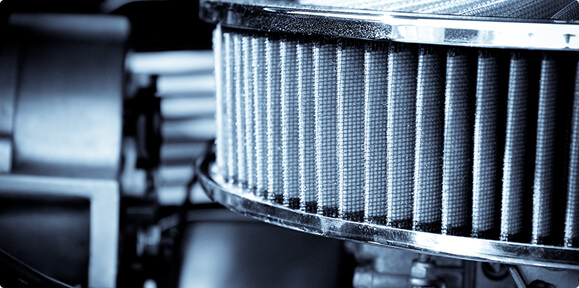
25 Jun Engine Airflow Equals Engine Power
Maximizing two-stroke equipment power and operability Requires an oil that fights deposits.
An internal-combustion engine needs three things to run: fuel, spark and air. Most people realize the importance of fuel and spark, but air is often overlooked. Maybe it’s because no one has figured out how to make us pay for the air our vehicles consume. Plus, air itself doesn’t require regular maintenance.
What does require maintenance, though, is your engine’s ability to ingest clean air and expel exhaust. Simply put, your engine needs to breathe.
In an automotive engine, you ensure good airflow by changing the air filter when needed. You also may need to replace exhaust components if they deteriorate and develop restrictions. Motor oil can play a big role in the health of the catalytic converter and other emissions control devices, particularly in diesels.
Heavy deposits = lost power
Oil quality also has a huge effect on airflow through 2-stroke engines used in string trimmers, chainsaws, backpackblowers and other equipment. If the oil’s detergency isn’t up to standards, deposits can form in the exhaust port (as seen in the image on the right) or on the spark-arrestor screen. Heavy deposits can choke off airflow and kill the engine.
To illustrate, imagine running around the outside of your house. Unless you’re in horrible shape, you can probably do that with relative ease. Now, imagine doing it again, only this time while breathing through a straw. The straw’s tiny opening restricts the volume of air cycling through your lungs. As a result, you slow down much sooner and likely need to stop running altogether to keep from passing out.
Carbon deposits have the same effect on two-stroke engines. Extremely hot combustion gases escape through the exhaust port during operation. For a two-stroke engine to ingest enough air to run properly and deliver maximum power, it has to cycle that air out of the engine at the correct rate, which is dictated by the size of the exhaust port. Restrictions prevent the engine from expelling combustion gases fast enough to refill the engine with fresh air/fuel and maintain optimum power. If the restriction is bad enough, the engine will quit altogether. In fact, the engine on the right, lubricated with ECHO* Power Blend* XTended Life* Universal 2-Stroke oil, suffered 76% airflow loss and, consequently, barely idled by the end of our test. You can see the full results in the ECHO 100:1 String Trimmer Technical Study (G3470), available to view free at www.amsoil.com/ performancetests.aspx.
Solve the problem once and for all
In the field, power loss due to plugged exhaust ports and spark-arrestor screens frustrates workers and wastes time and money. Lawn and landscape professionals, for example, are under pressure to produce professional-looking lawns and grounds as efficiently and cost-effectively as possible. A two-stroke oil that fails to protect against performance-robbing deposits wastes time and money. Sometimes workers resort to drastic measures to keep equipment running, like ripping the air cleaner out or pulling the spark-arrestor screen off the muffler to temporarily increase airflow and boost power. That kicks the problem down the road instead of fixing it. It also deteriorates equipment and wastes money.
The solution is to use an oil with detergency properties proven to prevent deposits. As seen here, AMSOIL SABER® Professional Synthetic 2-stroke oil mixed at 100:1 fights performance-robbing deposits better than other oils mixed at 50:1.
Not only does SABER Professional mixed at 100:1 save money on oil, it needs to deliver maximum power and help professionals get the job done on time and up to standards.
It may seem too good to be true, but we have the results to prove it.

